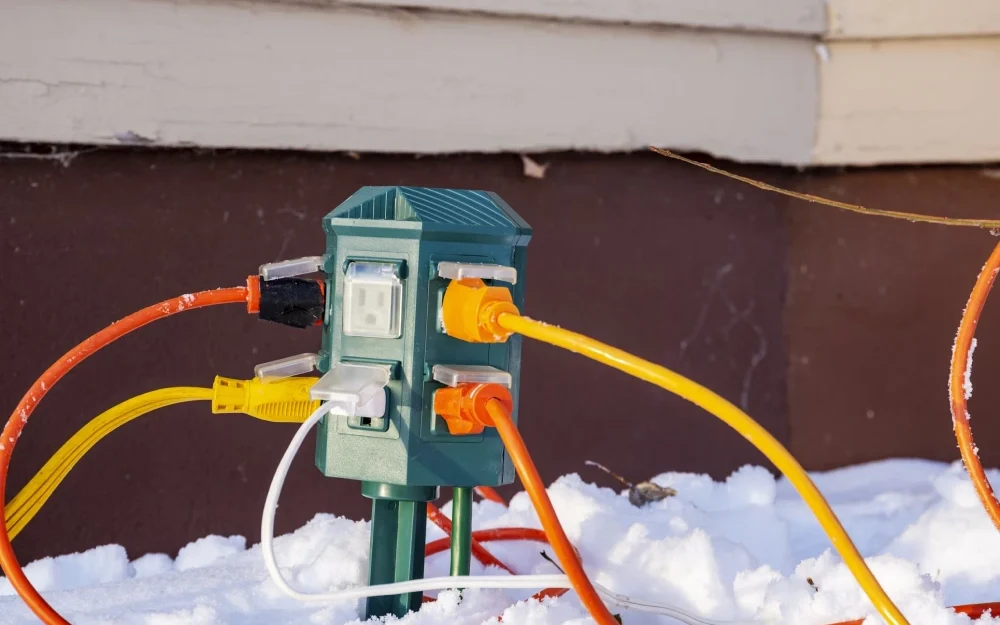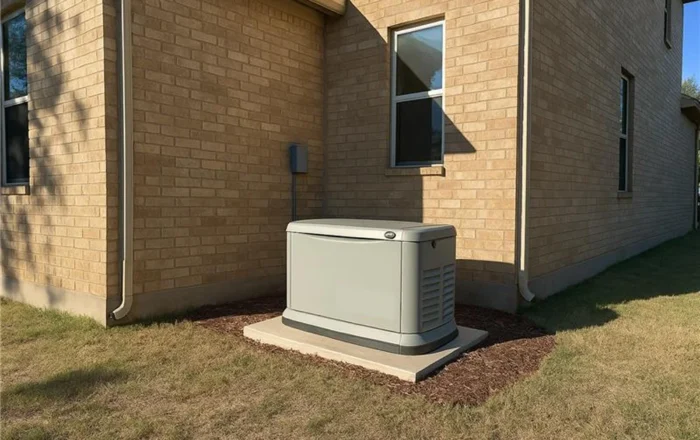Drought-Tolerant Plants for Texas Gardens
4 minute readGardening in Texas presents unique challenges. Long, hot summers and frequent droughts mean that traditional landscaping often requires significant water
Home > BKV Energy Blog > All Posts > Electrical Safety Tips & Best Practices: The Homeowner’s Guide
5 minute read • Last update July 2025

Did you know that electrical fires account for over 51,000 incidents every year in the U.S., resulting in $1.3 billion in property damage? That’s why understanding electrical safety at home is essential for keeping your belongings and family safe.
Here are our top 10 electrical safety tips to help ensure your home remains a safe haven.
Every American household faces numerous hazards, daily. That’s a fact. So, taking proactive steps to minimize risk by implementing a few straightforward electrical safety rules is a smart move. Here’s how to get started.
Electricity is always looking for a path to the ground. Plugging sockets with a ground fault circuit interrupter protects against electrical shock by shutting off the circuit when they detect an imbalance in electrical current caused by human contact. GFCIs are very efficient circuit breakers, capable of stopping the electrical load within 1/40 of a second.
They’re especially important in bathrooms and kitchens where water and electricity are more likely to come into contact. Without GFCIs, electricity safety is compromised and the risk of electrocution is significantly higher, particularly for small children and older adults.
When an electrical cord becomes frayed, the insulation that protects the conductive wiring inside can wear away, increasing the risk of a short circuit that can lead to a fire. In addition to fire hazards, exposed wires and loose connections can cause an electric shock.
Many modern power cords have built-in safety features. However, they might not function correctly when the cord’s insulation is damaged. Even when cords look okay from the outside, repeated bending or pulling can lead to internal damage that isn’t visible. So, regular inspection for signs of wear is vital to ensure electrical safety in the home.
Overloading power outlets can also lead to overheating and electrical fires. You’re less likely to overload outlets if you use power strips with a built-in circuit breaker and avoid plugging too many devices into a single outlet. You may wish to consider installing additional outlets to spread the load and improve electric safety.
It’s also a good idea to know the load that each electrical outlet can handle. As a general rule, most household outlets are designed to handle 15 or 20 amps of current at 120 volts, yielding a maximum capacity of 1800 to 2400 watts.
This is already one of the better-known electrical safety tips, as most people are aware that water and electricity do not mix. That’s why even small appliances like hair dryers and toasters come with warnings not to place them next to bathtubs and sinks. Aside from being careful with placement, you can minimize risk even further by ensuring your hands are dry before touching any electrical device or appliance that generates heat.
When plugs are left in the wall, appliances like TVs, desktop computers, and phone chargers continue to generate heat—even when they’re turned off. Leaving electrical equipment plugged in also makes your devices prone to surge damage after storms and outages when downed power lines resume regular operation.
There are some energy-saving benefits, too, making this one of the best home electrical safety tips if you’re looking for ways to lower your electricity bill. The U.S. Department of Energy estimates that unplugging unused devices could save the average household $100 annually.
Extension cords are convenient tools for powering multiple devices simultaneously. However, using one should not be considered a long-term solution, as most are not designed for permanent installation. If you must use an extension cord, take the following electrical safety precautions:
Every light fixture in your home is designed to handle a specific wattage based on its construction materials and electrical components. Using higher-wattage bulbs can overload your home’s electrical system, generating excess heat that increases the potential for fire. So, you should always check the fixture specifications and manufacturer’s electrical safety tips to ensure you don’t exceed the maximum capacity.
You could also consider switching to LED bulbs, which are safer, more energy efficient, and last longer—up to 25,000 hours, compared to only 1000 hours for regular bulbs.
It only takes one heat-producing appliance to start a fire. Ensuring flammable materials like paper, cloth, and plastic are kept at a safe distance is one of the most basic electricity safety tips. If your home uses a lot of electricity and appliances, investing in the correct electrical safety equipment is also advisable. In addition to smoke alarms and fire blankets, this might include a carbon dioxide or dry powder fire extinguisher, as foam extinguishers aren’t usually suitable for electrical fires.
Keeping children safe is a primary concern for many homeowners. Outlet covers keep curious little fingers away from electrical energy. The best covers have shutters across the live terminals, which only the correct plug will open. This eliminates the potential for children to injure themselves by trying to insert metal objects like forks and paper clips. Always check that outlet covers are securely in place, and be proactive in replacing damaged ones.
Always hire a qualified electrician for significant electrical work like rewiring or installing extra electrical panels. Licensed professionals are well-versed in electrical safety procedures and have all the necessary electrical safety training to ensure the job gets completed efficiently without fire or injury.
Hiring a knowledgeable professional is the only way to ensure that the electrical wiring in your home complies with the relevant local codes and safety standards.
Electrical issues are one of the leading causes of house fires, second only to cooking accidents. So, learning to avoid electrical hazards wherever possible is vital. Here are some mind-opening statistics for you to consider:
These sobering facts underscore the necessity of understanding how electricity functions and highlight why the electrical safety tips outlined above are crucial for ensuring the safety of you and your family.
At BKVE, we understand the desire to create a safe and efficient home environment while managing energy costs. Implementing the electrical tips in this guide is a good start. However, you can save even more by selecting Texas’ #1 gimmick-free electricity plan. We pride ourselves on giving our customers premium benefits without implementing sneaky base charges or usage fees. Compare plans today to see how much you could be saving!
Graham Lumley, Digital Marketing Manager at BKV Energy, leads digital and traditional marketing strategies, focusing on educating Texans about the state's deregulated energy market. With over 8 years of marketing experience, he creates content to help consumers understand and save on their energy bills, bringing a fresh and dynamic approach to the industry.

Gardening in Texas presents unique challenges. Long, hot summers and frequent droughts mean that traditional landscaping often requires significant water

How to choose the right generator for your Texas home
Get $50 off your electric bill!
Use code BKVEJOINUS50
Enter your zip code to shop BKV Energy's affordable, fixed-rate Texas electricity plans. Use the promo code for $50 off your electric bill.